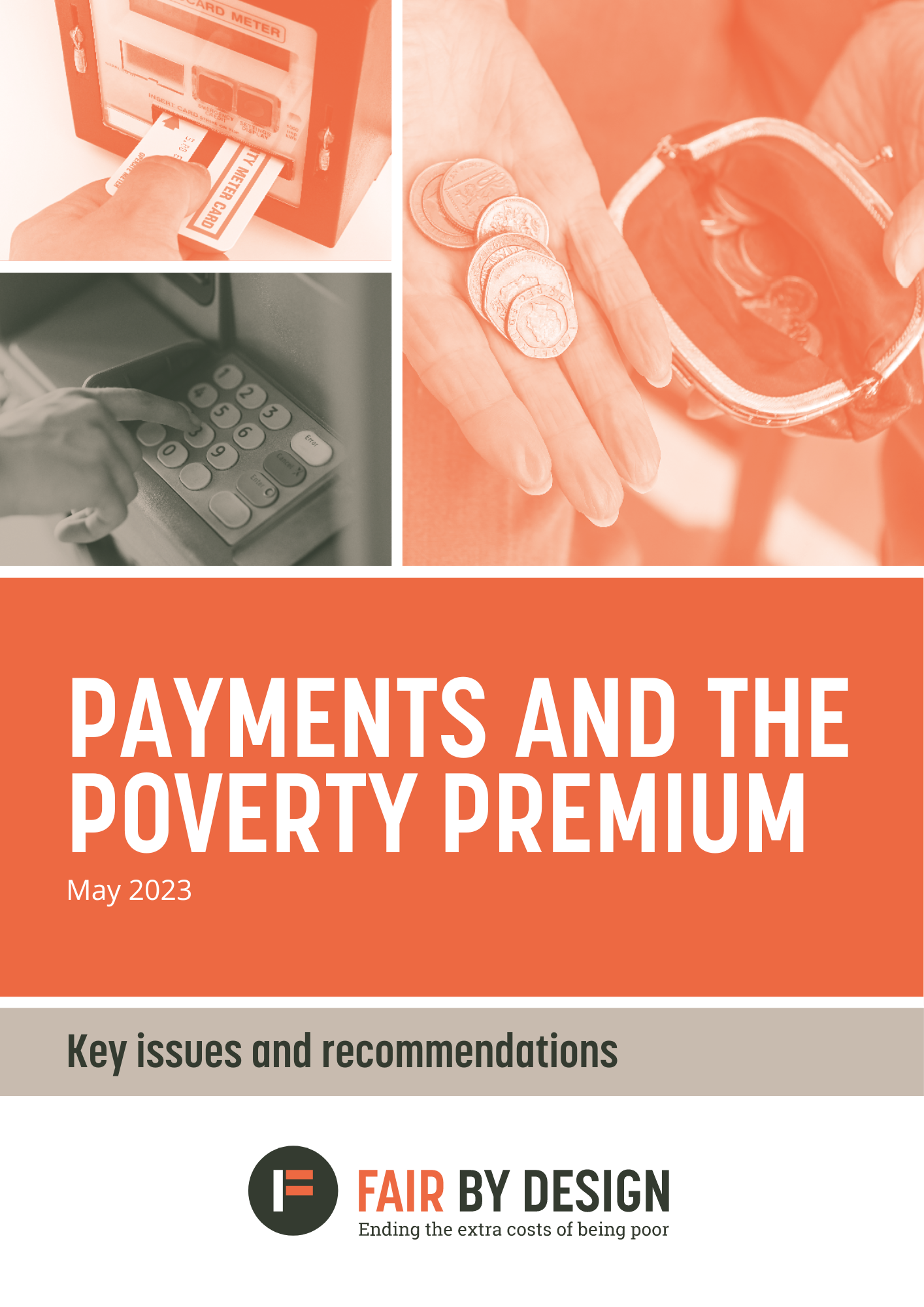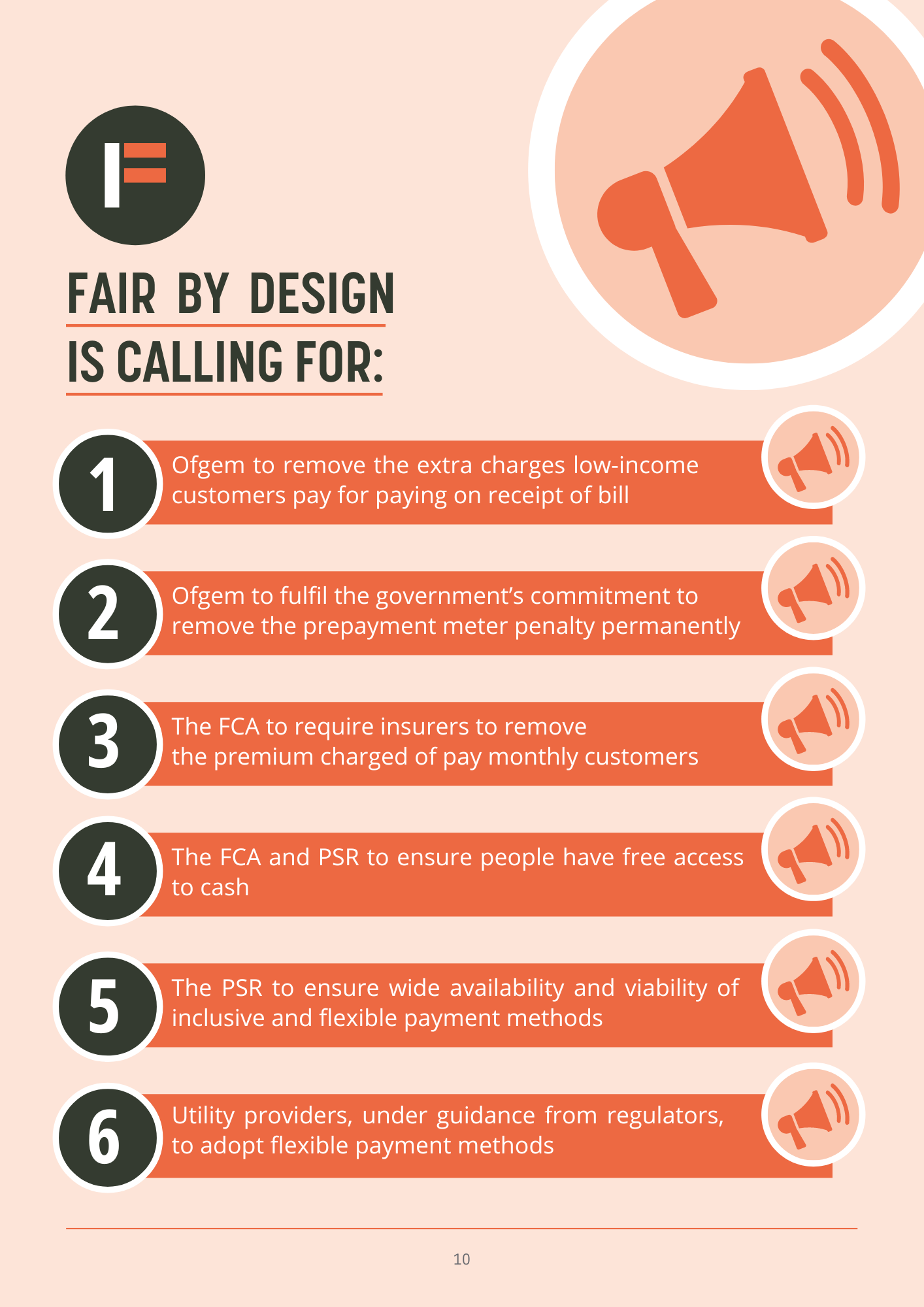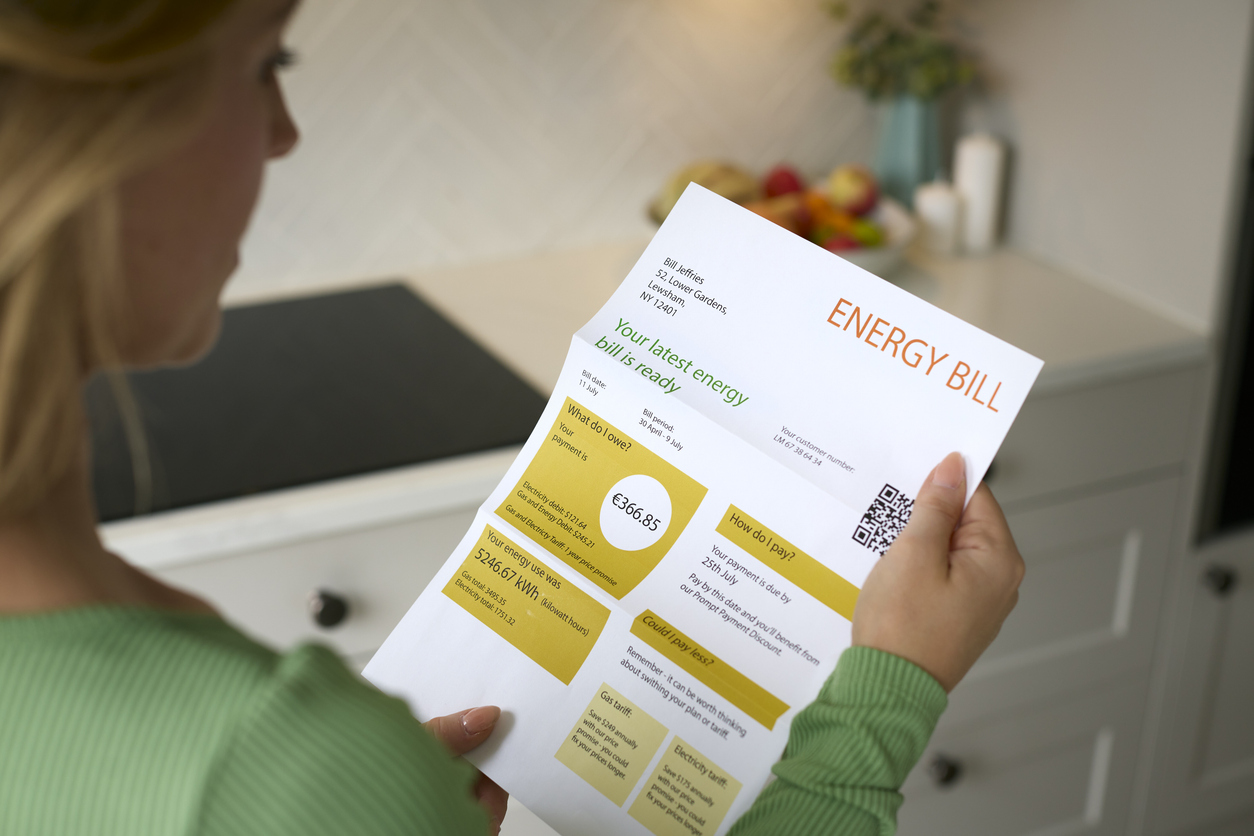Payments for essential goods and services have not been designed with the needs of people in poverty or on low incomes in mind.
Everyday millions of payments are made in the UK, from online transactions to cash in shops. They are an essential part of life today.
However, some payment methods create a poverty premium, meaning people are charged more for the way they spend their own money.
Some people do not have bank accounts so have no access to direct debits, which tend to be a cheaper way to pay for bills. Others are charged to use fee-charging ATMs because they use cash to budget on a tight income. In some cases, people who need insurance can’t pay the full cost for a year in one go, and end up paying extra for the ability to pay in instalments.
Fair By Design is working with the Payment Systems Regulator (PSR) and utility regulators to ensure utility companies can offer flexible, cheaper ways for people to pay bills; e.g., via customer-controlled payment flexibility schemes such as Request to Pay.





